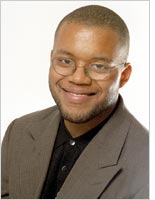What Does it Mean to Be a Plagiarist?
From Jayson Blair to President Obama...
 Jayson Blair is a plagiarist. Pierre DesRuisseaux is a plagiarist. Former U.S. Vice President Joe Biden is also a plagiarist.
Jayson Blair is a plagiarist. Pierre DesRuisseaux is a plagiarist. Former U.S. Vice President Joe Biden is also a plagiarist.
These are three very different stories about plagiarism. They are different not only in the plagiarism that was performed, but the role the plagiarism played in their careers and the impact being caught had.
However, in all three cases, and millions more like them, two things are consistent: The label of plagiarist and the eternity with which it is applied.
Because of this, the term “plagiarist” has become something of a strange one. It’s a term that can theoretically be applied to almost anyone, but it’s applied for a lifetime with no modification or qualifiers.
Once you’re a plagiarist, you’re always a plagiarist.
This raises a series of questions: What does it mean to be a plagiarist? Can you be a former plagiarist? Can you be a redeemed plagiarist?
These are tough questions but they are important ones to approach as technology is making it easier to catch plagiarism and, thus, create new plagiarists. If we’re going to apply this moniker to more and more people, we should at least take a moment to understand what it means, how long it should be carried and what it should mean for the futures of those who carry it.
Defining the Plagiarist
 Fundamentally, a plagiarist is simply someone who has committed plagiarism.
Fundamentally, a plagiarist is simply someone who has committed plagiarism.
However, one only needs to be accused of plagiarism just once for the label to stick. It doesn’t matter how weak the allegation is or how far in the past it is.
There are still many who consider President Obama a plagiarist even though his “scandal” was more smoke than fire. The same is true for Senator John McCain.
Often times, plagiarist is simply a label that you can throw onto someone you don’t like, even if the evidence is flimsy. This works in part because there’s no official agency that determines what is and is not plagiarism. What constitutes plagiarism is often a matter of opinion and it’s very possible for two reasonable people to disagree.
But despite the subjectiveness of plagiarism, the term plagiarist is a powerful label that lasts a lifetime. Once you are known as a plagiarist, it’s impossible to lose that label, especially if you’re a writer, artist or other creative.
Thanks to the internet, the label isn’t obscure either. Once you’re considered a plagiarist, anyone who is curious about you can and will discover that information. This can have a significant impacts on job opportunities and other opportunities down the line.
In short, once someone determines you’re a plagiarist for life. The term is a life sentence and there really isn’t much of a way to escape it.
However, this can be extremely unhelpful considering we use the term “plagiarist” to describe a wide variety offenders, including many that probably shouldn’t be considered a plagiarist at all.
The Passion Behind the Term
It’s easy to see why the term plagiarist carries so much weight, even among non-creatives. Plagiarism represents a major ethical failing. At the heart of plagiarism is a lie, claiming the work of another as your own, and that lie can reflect very poorly on someone’s character.
This is why plagiarist is such a powerful label, even among those with no interest in writing or the arts. When you call someone a plagiarist, you’re accusing them of being a liar.
But while the passion is understandable, the application of the term has raised a lot of problems. When the same term is applied to someone who is weakly accused of plagiarizing once years ago, such as President Obama, and to someone who flagrantly plagiarized dozens of times across their career, such as Jayson Blair, you run into a serious problem.
The term plagiarist, as we use it, doesn’t allow for nuance or discussion. The result is that it is applied broadly, often recklessly, and that is both unfair to those who are slapped with the label unjustly as well as those who do truly deserve it.
When a true plagiarist joins the company of one weakly (or even falsely) accused, the weak accusations carry more weight and the serious ones become diluted.
In short, the term plagiarist loses much of its meaning and that is unfair to everyone involved.
The Need For Conversation
The time has come to have a serious conversation about the term plagiarist. Fundamentally, there are three question that need to be answered:
- Is there a such thing as a former plagiarist?
- If there is, when does a plagiarist become as such?
- How do we inject more nuance when discussing plagiarism?
Currently, being a plagiarist is much like being a murder. There are no “former murderers” and we rarely discuss the history of murderers with any nuance. However, this makes some degree of sense with murder as it’s a very serious crime and it’s courts that determine guilt or innocence.
But, while plagiarism is a serious crime, it certainly doesn’t compare with murder. Furthermore, there are no judges or juries making determinations of plagiarism in most cases and no practical way for the accused to truly clear their name.
But despite that, the label is just as permanent, just an un-nuanced and can be just as harmful to a career.
That is a lot of power in a word that can be so easily and recklessly applied, and it’s something we need to think about as we continue to apply to more and more people.
Bottom Line
The term plagiarist can be applied to almost anyone as almost everyone has done something that someone else would consider plagiarism.
But, when we continue to use the term plagiarist without nuance or without deeper conversation, we give that word a great deal of power. This can destroy the lives of those weakly or falsely accused by lumping them with serious plagiarists and serial liars who deserve the blacklist they’ve received.
But that lack of nuance also means that those serious plagiarists are able to hide in the sheer volume of those who are accused. When so many carry the moniker of plagiarist, the term loses some of its sting.
This makes it important to not just know whether or not someone is a plagiarist, but what they are accused of, how strong the evidence is and what the repercussions were. When a term can easily lump everyone from Jayson Blair to President Obama, it’s important to focus on the details of the stories.
Unfortunately though, there seems to be little interest in doing that and, instead, more interest in applying the label and walking away.
That’s destructive to both the people it’s affixed and to the term itself.
Want to Reuse or Republish this Content?
If you want to feature this article in your site, classroom or elsewhere, just let us know! We usually grant permission within 24 hours.
